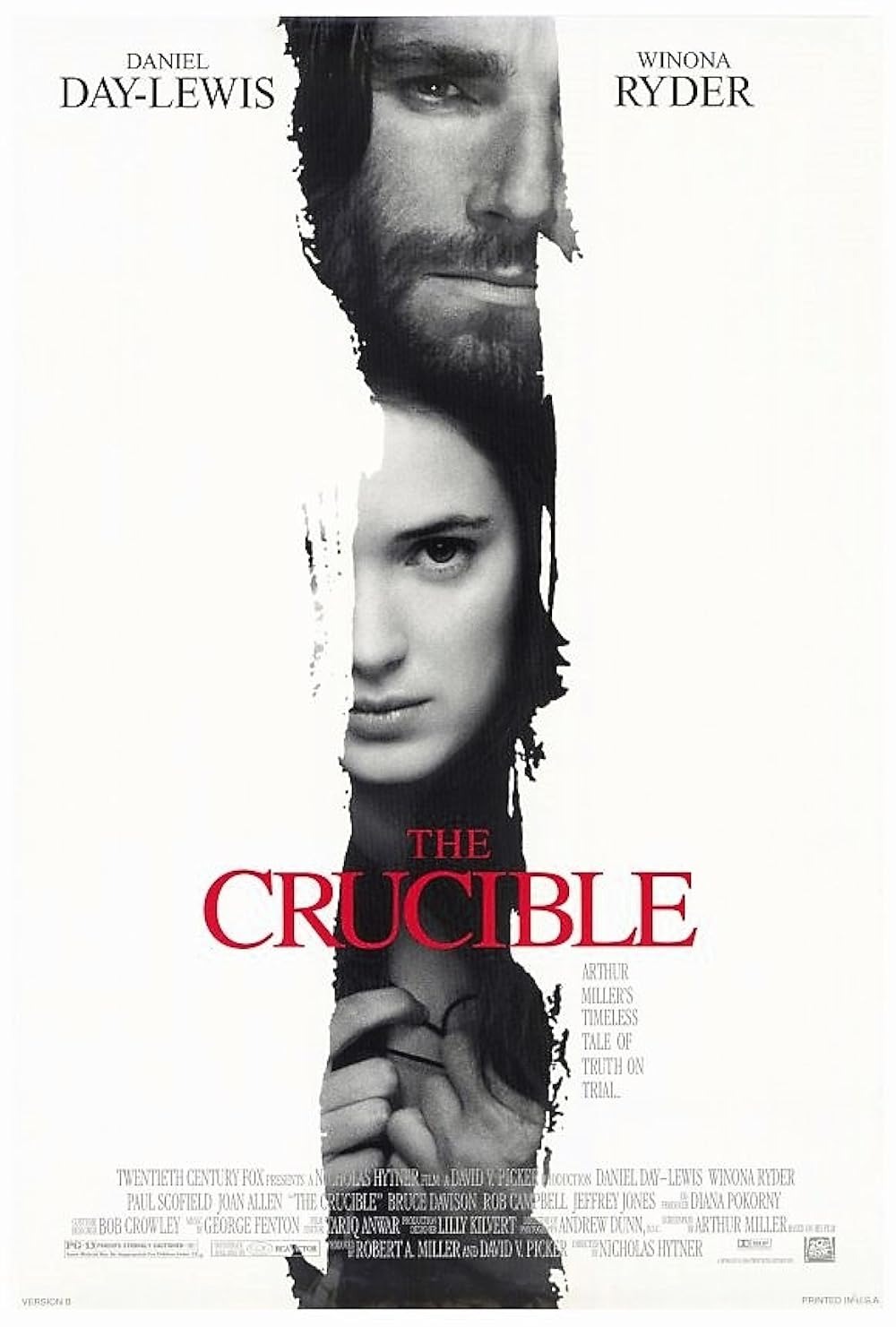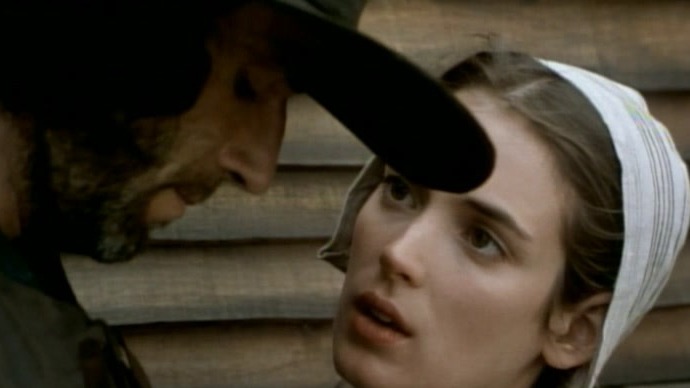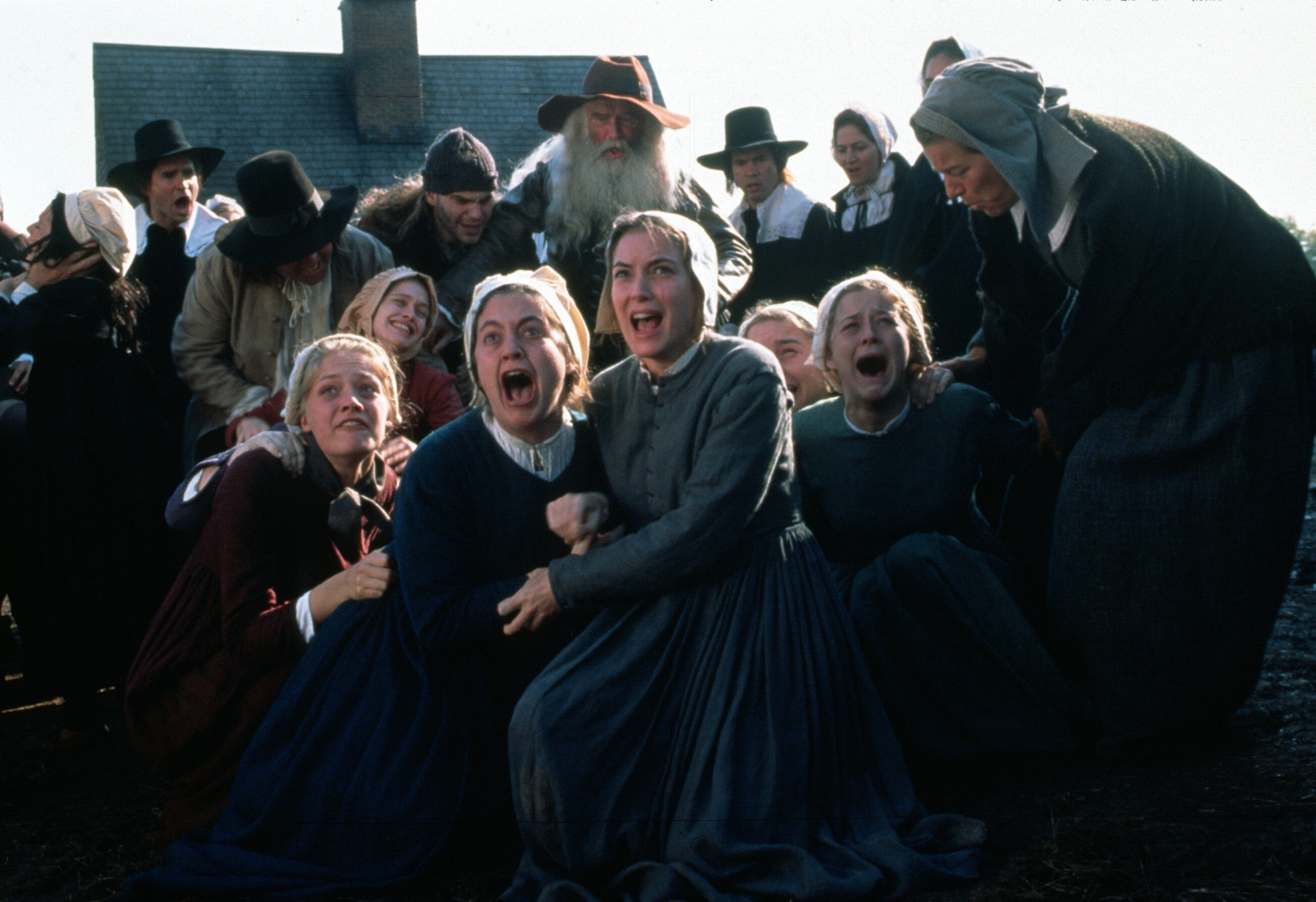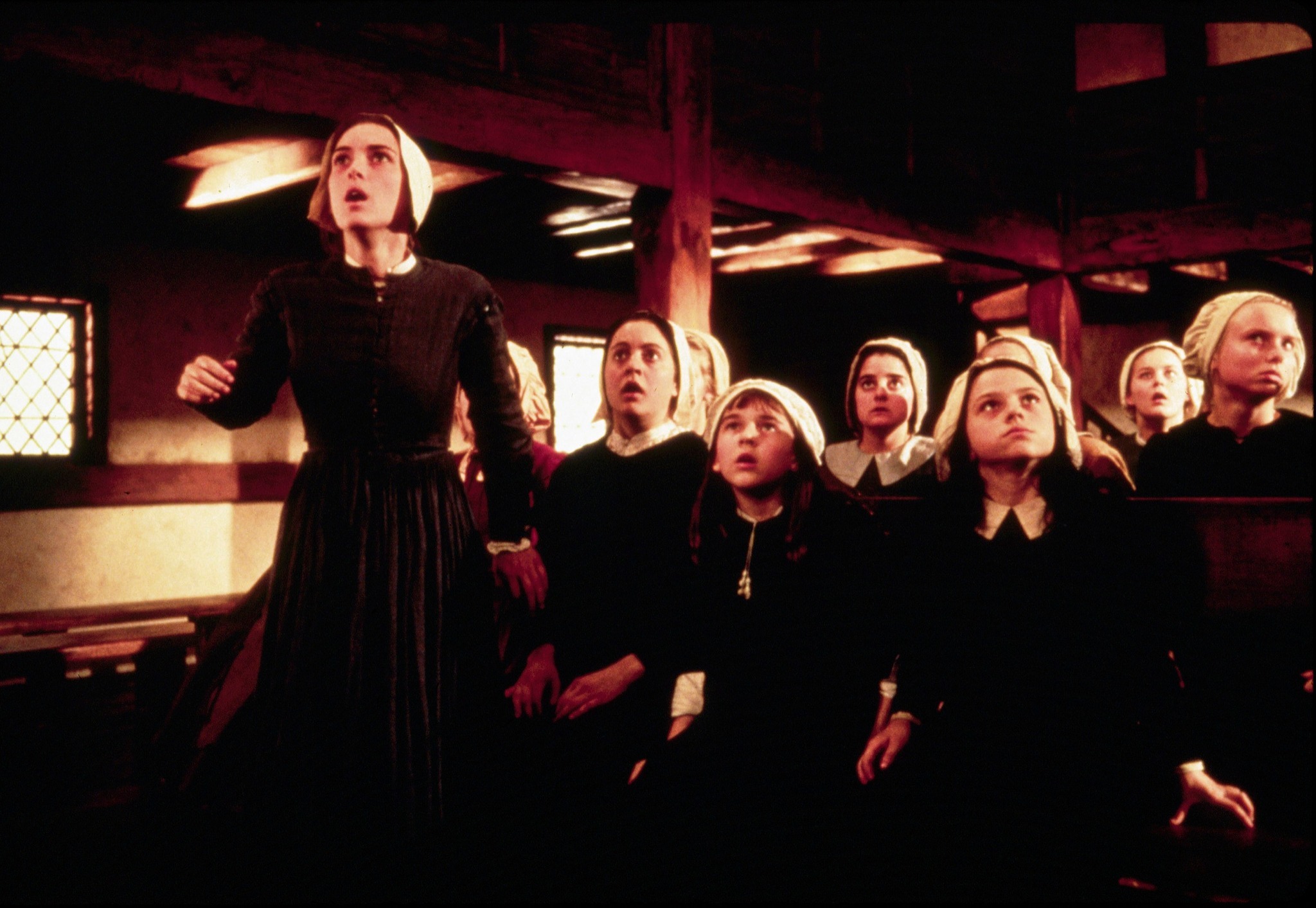The Crucible (1996)

The Crucible (1996), directed by Nicholas Hytner, is a gripping adaptation of Arthur Miller’s play that explores the hysteria and moral dilemmas surrounding the Salem witch trials. Set in 1692 Massachusetts, the film follows John Proctor (Daniel Day-Lewis), a farmer whose life spirals into chaos when rumors of witchcraft engulf his community. As neighbors turn against one another and paranoia takes hold, Proctor must confront his own past sins and fight against the oppressive forces that seek to destroy him and those he loves. The film powerfully examines themes of integrity, guilt, and the consequences of societal fear, making it a poignant reflection on the nature of truth and justice.



Cinematically, The Crucible is marked by its atmospheric production design and haunting cinematography, which vividly capture the bleakness of the Puritan setting. Hytner’s direction emphasizes the tension and emotional stakes of the narrative, allowing the performances to resonate deeply with the audience. Daniel Day-Lewis delivers a compelling portrayal of Proctor, embodying the character’s inner turmoil and moral courage, while Winona Ryder as Abigail Williams adds complexity to the story with her portrayal of manipulation and desire. The film’s score, composed by George Fenton, enhances the dramatic intensity, underscoring the characters’ struggles. Overall, The Crucible stands out as a powerful and thought-provoking adaptation that brings Miller’s timeless themes to life, resonating with contemporary issues of fear, accusation, and moral truth.

